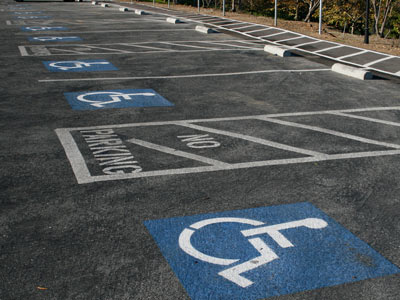
Purpose
The purpose of providing college academic accommodations to students with diagnosed disabilities is to ensure that a student has equal access and is not discriminated against because of the disability.
Reasonable Accommodations
Reasonable accommodation will vary on a case-by-case basis depending on how the disability impacts various aspects of the student’s college experience. Reasonable accommodations are determined by reviewing the following:
- The barriers resulting from the interaction of the documented disability and the campus environment.
- The possible accommodations that might remove barriers.
- Whether or not the student has access to the course, program, service, or activity without an accommodation.
- Whether or not essential elements of the course, program, service, activity, or facility are compromised by the accommodation.
DRC staff members facilitate dialogue with all relevant parties until a reasonable outcome is achieved.
Accommodations should not fundamentally alter the nature of a program, course, service and/or activity. Examples of accommodations that may not require such an alteration include: extended time for exams, reduced distraction testing room, use of a reader for exams, copies of a peer's notes, materials in an enlarged font, and textbooks in an alternative format.
While the instructor can choose to make any accommodation or alteration they deem appropriate, the DRC cannot require one that would be out of line with the goals and objectives of the course. For example, while an instructor could decide to give the student an alternate assignment, such as a paper or project, as an alternate means of assessment, the DRC would never require that adjustment of an instructor.
Reasonable accommodations do not and should not:
- substantially alter the educational standards or mission of Truckee Meadows Community College;
- fundamentally alter the nature of the program, course, service and/or activity;
- allow access to a program when a student is not otherwise qualified (with or without accommodations) to meet the academic and technical standards required for admission or participation in an education program, course, service and/or activity;
- pose undue financial or administrative hardship (College-wide);
- pose a direct threat to the health or safety of the student with a disability or others.
Review and Approvals
During the intake interview, students will be approved for accommodations with the assistance of the DRC specialist. Subsequent requests for additional services must be made in writing.
The DRC specialist will approve additional accommodations after a review of the appropriate documentation. It is the student's responsibility to provide additional documentation, if needed, to assess additional requests.
Accommodation Requests
In order to provide the best accommodations, DRC students should request all accommodations via AIM each semester at least one week in advance.
Appointments
If a student is unable to keep an appointment with a service provider (such as captioning, interpreting, reading, test proctoring, scribing or other services), the student will notify the DRC at least 24 hours in advance. If a student fails to notify the DRC of such cancelations, the service will be suspended until reinstated by the DRC specialist. If a DRC student encounters problems with a service provider, the student must notify the DRC in writing so that the issue can be resolved.
Textbook Requests
To process textbooks in an alternate format, the DRC needs six to eight weeks advance notice .
Special Services/Deaf and Hard of Hearing Service Requests
For specialized services, such as interpreting/captioning, please see Deaf and Hard of Hearing Policies and Service Requests.






